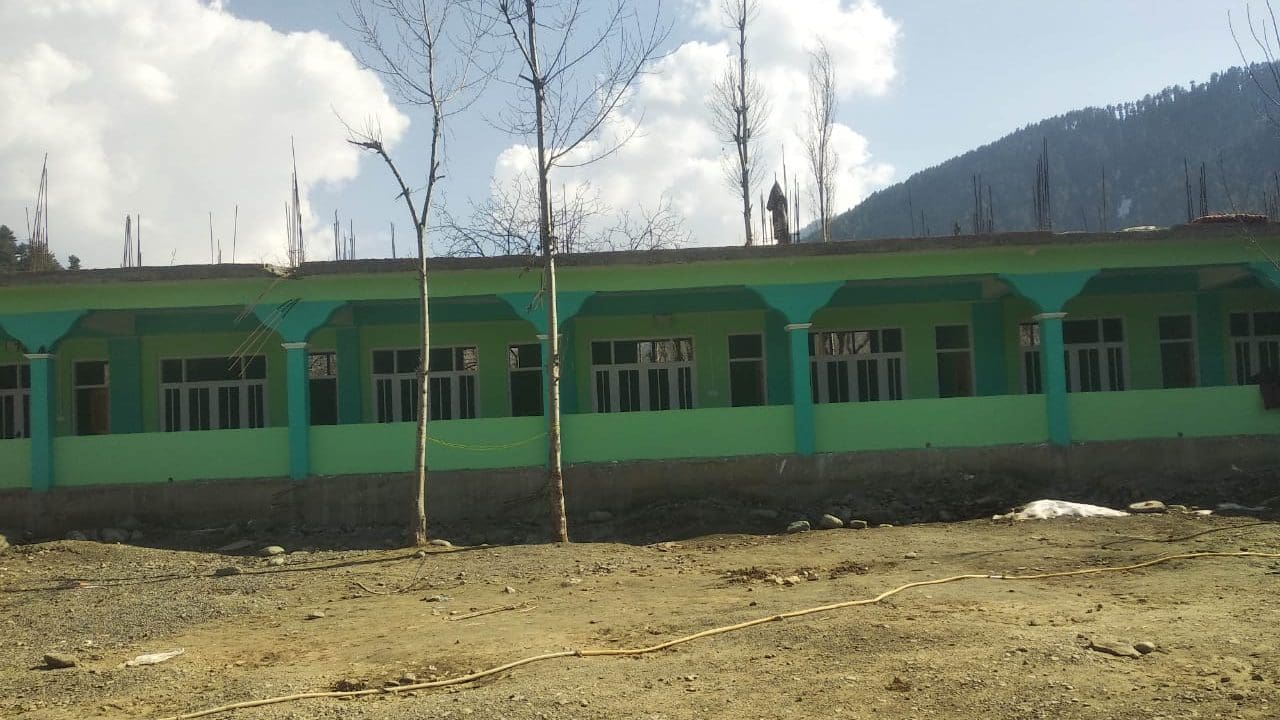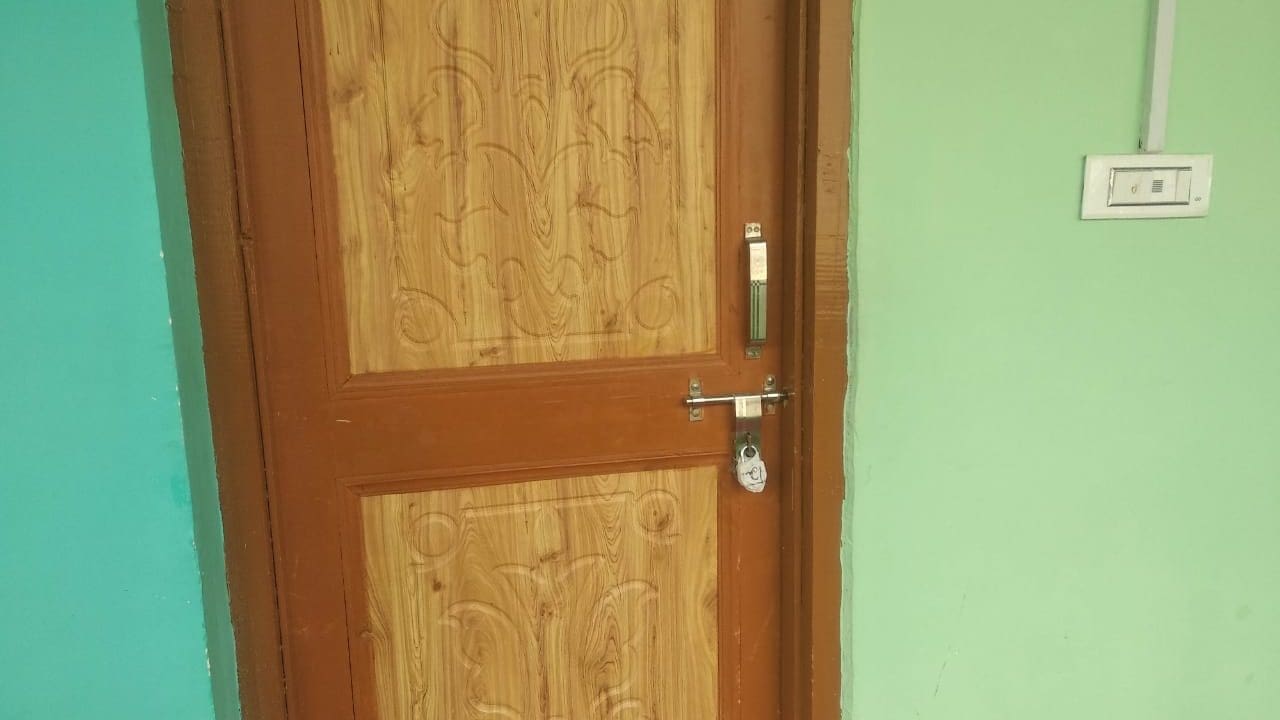
On 11 March, female students of Arifa Khatijul Kubra Trust, a private residential Islamic school for girls, in the Kokernag area of South Kashmir were shocked to see revenue officials in their compound.
It was the second day of the new session when officials entered the building and started to seal the “illegally-built” two-storied building.
“We asked them why rooms were being locked but they did not respond,” says Mehwish, a final year student.
As the sealing of rooms began, the mess, where food was being cooked was also closed, leaving students without food on that day. According to an employee who doesn’t wish to be named, “water was poured in cooking utensils and cooks were shooed out of the kitchen.”
What irks locals, management and students, in particular, is why only the Islamic seminary was targeted leaving other patches of state land unattended — a claim denied by officials.
“We have retrieved 1000 kanals of state land within two months,” claims Syed Muiz Qadri, Tehsildar, Kokernag.
But critics argue that the revenue department looks away when army schools are built on state land in the valley.
“This seems to be part of an ideological war — pushing Muslims against the wall,” says advocate and social activist Majid Banday.
“If the status of land in possession of both institutions is same, govt cannot discriminate without a valid reason.”
As per the official website of Army goodwill school, the Indian Army over the years has established 43 schools in Jammu and Kashmir for “terrorism affected populations”.
As per the government’s own admission in the legislative assembly in 2018, 21,400 hectares (428000 kanals) of land were under the unauthorised occupation of the army and other government forces.
With the scrapping of article 370, the union government has made acquiring land for security forces even easier, doing away with the requirement of a no-objection certificate.
Before annulling the Roshni Act, a law that granted ownership of Jammu and Kashmir state lands to unauthorised occupants of those lands with the aim of raising money for power projects, Qari Ashraf, the patron of Kubra Trust had been made to pay Rs 3 lakhs in the name of fee for a smooth process.


The management continued with the construction process unhindered until the revocation of special status under article 370.
“We were assured by authorities that under the Roshni act, land in our possession will be converted and made the property of the seminary,” Ashraf told Maktoob.
After govt scrapped Roshni act in 2020, Ashraf, worried about the future of girl students, wrote a letter to Baseer Khan, advisor to the Lieutenant Governor of Jammu and Kashmir.
Considering the contribution of the institution, Talib, a driver at the Trust has offered his own land in lieu of state land where the structure worth lacs is built.
Humble beginning
In late 2005, Qari Ashraf shifted to Kishtwar to start a small facility to educate orphan and destitute girls who are unable to get an education. He wanted to make them self reliant.
“Initially, for 50 students, we began in the form of maktab without any boarding facilities in a two-room structure provided by locals,” says Ashraf.
But eventually, realizing the significance of an Islamic seminary, a Trust was set up and partly-locked building in 2010. Vocational training activities are also part of the curriculum.
“As of now we have around 450 students who not only acquire knowledge but sewing skills and computer education are also provided.”
“At a time when the need—to—skill young India is made a priority, the closure of such a centre is deemed by many a step uncalled for,” says locals.
Uncertain Future
Among the students enrolled is Urfi Jan, a 24-year-old girl from Tral. She joined after her father’s death when the option to continue studies at home was no longer feasible.
“My objective is to acquire knowledge and later on preach as well as establish my own institute,” says Urfi who may not be able to complete her course if the authorities decide to shut down the school.
For Mehwish who joined right after 7th grade, the reasons to join were quite different. “Seeing the environment around, the dress code which we were made to wear in school, compelled me to opt for religious studies where modesty is the priority.”
Enraged over the sudden closure of the library and classroom of final year students, Mehwish adds, “ They ought to have said for what purpose they suddenly arrived.”
Following the closure of rooms, the authorities filed an FIR against Qari Ashraf for violating land revenue laws.
“For encroachment on state land and illegal construction we filed an FIR,” Tehsildar told Maktoob.
Yasmeena, in her final year, said, “We will not let them close it.”



